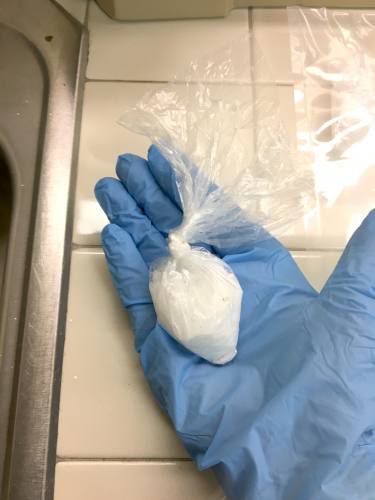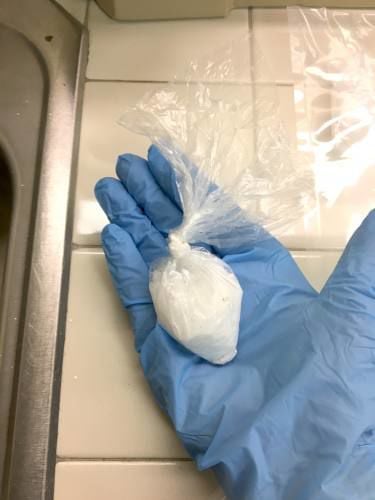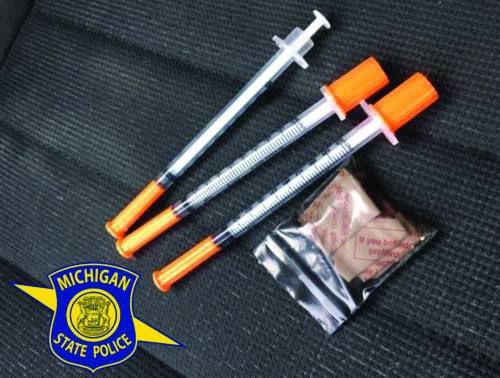Addiction help still possible during quarantine



CADILLAC — The methamphetamine and drug problem didn’t just go away as COVID-19 reached Northern Michigan.
“We’re still seeing overdoses in the ER across the (Munson) system,‘ said Dr. James Whelan, acting chief of medicine for Munson Healthcare Cadillac Hospital who is also a physician in private practice.‘It hasn’t gone away.‘
There’s some concern, in fact, that in the coming months, drug addiction problems may seem worse.

It’s a possible unintended consequence of social distancing.
People with substance use disorder can struggle with social isolation, and quarantine means “that’s been made much worse,‘ Whelan said.
“Supportive, human interactions are part of how we cope with the challenges of addiction. And when you’re not allowed to have that human interaction, that can be a huge challenge,‘ said Whelan.
Face-to-face interaction with a counselor can be the lifeline that keeps “someone struggling on a positive path,‘ Whelan said.
Though counselors are offering virtual sessions, “not everyone has access to a virtual platform or feels like it’s as effective as they would like it to be,‘ Whelan said.
Anecdotally, there’s been evidence of or stories about people relapsing.
The consequences of the quarantine might not be known for some time.
There’s some expectation that people will flock back to treatment as “the curve‘ flattens, there’s also some concern amongst doctors that people won’t come back to treatment.
Some might be embarrassed about their relapse.
In Cadillac, as is true elsewhere, the methamphetamine problem is also a law enforcement problem.
And right now, sticking people in jail who are addicted to meth or other drugs isn’t anybody’s first choice.
“(My sense is that) law enforcement have been less and less likely to put someone in jail just because it could be dangerous to put them in jail,‘ Dr. Whelan observed.

It’s a problem Wexford County Prosecutor Jason Elmore has focused on for longer than just the COVID-19 pandemic, he noted in an email to the Cadillac News.
Elmore was recently on a Whelan-led call about prescription drugs and the drug epidemic in Northern Michigan.
“Our drug problem is not being driven by physicians and prescriptions. It’s driven by meth, heroin, and fentanyl — none of which are coming from prescriptions issued locally,‘ Elmore said. “Covid will come and go. The three amigos of the drug epidemic were here before, are here now, and will be here infecting and destroying for years to come unless we take aggressive steps.‘
Leadership among public health, law enforcement, medicine and schools have been undergoing efforts to build “resiliency‘ in the community, which will help children overcome traumas they experience as youngsters, making them less likely to use drugs to cope with hardships later in life.
But that’s a generational approach.
“People don’t have the opportunity to become addicted to prescription opioids the way they did before because they just can’t get them,‘ Whelan said, speaking of efforts to reduce and restrict when opioids are offered to patients. “But the tendency to and susceptibility to addiction as a whole is caused by adverse childhood experiences.‘
For people who are addicted to drugs now, medication-assisted treatment and counseling are the best local tools (Cadillac does not have a rehab facility).
And methamphetamine addiction is hard to treat because of how addictive the drug is.
But still, Whelan urges people who are dealing with addiction to reach out for help — yes, even during the pandemic.
Help is available.
“Someone will be able to help you. Even though you’ve been afraid to seek treatment during this tough time, it is available and we don’t want to discourage anybody,‘ Whelan said. “We can do it safely we can take care of them safely.‘
Whelan said people who need help should call their primary care physician. If you don’t have one (or even if you do) the following resources are available:
Catholic Human Services at (231) 775-6581
Northern Lakes Community Mental Health at (231) 775-3463
Harm Reduction Michigan at (231) 486-5441 (someone will call you back if you don’t get through).
 Pathways Drug Rehabilitation Luxury Addiction Treatment & Detox Center
Pathways Drug Rehabilitation Luxury Addiction Treatment & Detox Center


